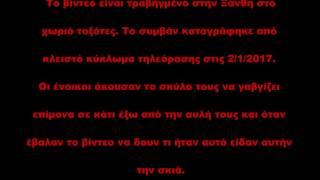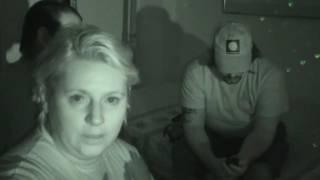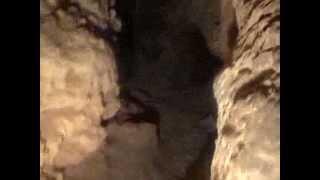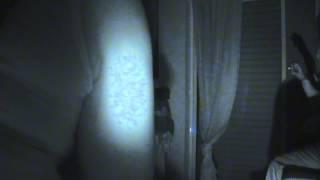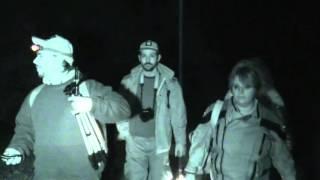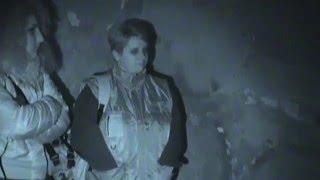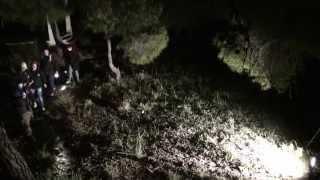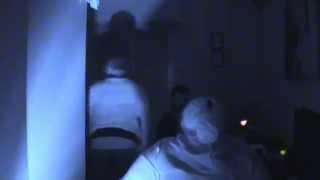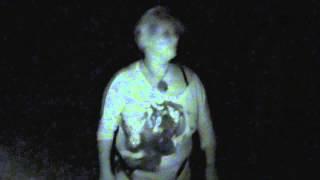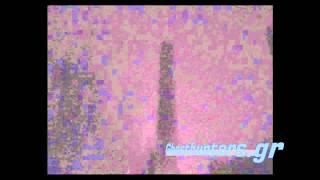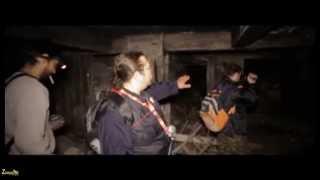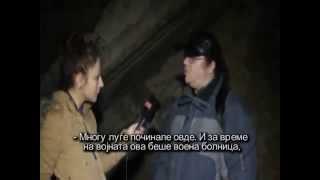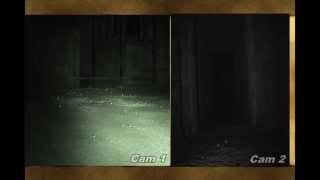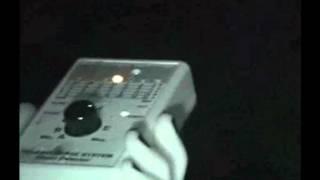Stephen Flowers, Ph.D : The Occult in National Socialism: The Symbolic, Scientific, and Magical Influences on the Third Reich
To listen to Part 2 become a premium member at http://www.veritasradio.com
LINK TO THE LATEST EPISODE: https://veritasradio.com/on-air-youtube.php
Like this video so others can also benefit from it.
Don't miss out! Subscribe to this channel and hit the bell to be notified when new episodes become available!
Donation via Cash app: https://cash.app/$veritasradio (This link is for donations only. If you wish to subscribe, go to https://veritasradio.com/subscribe.html)
For Part 2 and full access to all of our interviews, subscribe at http://www.veritasradio.com in order to support an impartial, censorship/commercial-free platform.
Download our RSS feed with Part 1 of all of our interview: http://www.veritasradio.com/vs.rss
Web: http://www.VeritasRadio.com
Facebook: http://www.facebook/veritasshow
Twitter: https://twitter.com/MHostalrich
*** Please LIKE / Comment / Subscribe to This Channel! ****
This portion is being provided as a courtesy from Veritas Radio. To listen to more of this exclusive interview proceed to http://www.veritasradio.com
S Y N O P S I S
Germany had never been a nation-state in the same way France or England had been since the end of the Middle Ages. Nevertheless, there was a nascent collective cultural identity among all German-speaking peoples of Central Europe. These include inhabitants of present-day Germany, Austria, and the northern cantons of Switzerland. Over the course of the nineteenth century, a number of German-speaking political entities—kingdoms, principalities, free cities, and other political corporations in the western part of the German-speaking area—were unified by Bismarck into a state ruled by the Prussian king and now kaiser, Wilhelm I. The century saw Germany go from a collection of independent, almost tribal, kingdoms to a new empire. At the dawn of the nineteenth century, all of Europe was involved in a cultural debate between Enlightenment thinking couched in Neo-Classical aesthetics and the new approach proposed by the Romantics. Germany was no exception. The Enlightenment valued the rational mind above all else; Enlightenment thinkers questioned received traditions and extolled the virtues of simplicity, precision, and clarity. Enlightenment aesthetics revolved around mechanistic models—the whole world was seen as a great machine or clockwork with the Creator as the great clockmaker. Politically, the Enlightenment favored the development of international institutions and interconnections.
It was in the name of the Enlightenment that Napoleon conquered much of Europe in wars lasting from 1803 to 1815. Romanticism, on the other hand, criticized the arrogant naiveté of the Enlightenment and insisted on the primacy of emotion for human happiness. Romantics turned to the wildness of nature, extolled the “noble savage,” and delved into the night-side of life, into dreams and myths. In the Romantic introversion, the individual body was revalorized as was the collective organic body known as the nation (or Volk). The energy to throw off Napoleon, the foreign conqueror who had originally been welcomed to Germany as a liberator, came from that Romantic spirit.
Additionally, Germany continued to pioneer policies of public welfare, such as health insurance and benefits for disabled and elderly citizens. By the turn of the century, Germany was the most technologically advanced, highly educated, and industrialized country in the world. The expected national ambitions commensurate with these accomplishments in a world that had little room for an upstart major player in geopolitics, could only lead to disaster. Throughout the nineteenth century the symbolic world of volkism, the realm of scientific research, and the occult subculture were fermenting toward the eventual outpouring of an intoxicating brew in the twentieth century. But it must be remembered that all and everything the twentieth century manifested—the entire spectrum of activity—had roots in what went before it in time. There is nothing “inevitable” or “natural” about how any of these older ideas were used by later artists, scientists, or politicians. Each remains responsible for his own actions. We shall now explore in more detail the foundations of the folkish, scientific, and occult realms of the nineteenth century.
To listen to Part 2 become a premium member at http://www.veritasradio.com
LINK TO THE LATEST EPISODE: https://veritasradio.com/on-air-youtube.php
Like this video so others can also benefit from it.
Don't miss out! Subscribe to this channel and hit the bell to be notified when new episodes become available!
Donation via Cash app: https://cash.app/$veritasradio (This link is for donations only. If you wish to subscribe, go to https://veritasradio.com/subscribe.html)
For Part 2 and full access to all of our interviews, subscribe at http://www.veritasradio.com in order to support an impartial, censorship/commercial-free platform.
Download our RSS feed with Part 1 of all of our interview: http://www.veritasradio.com/vs.rss
Web: http://www.VeritasRadio.com
Facebook: http://www.facebook/veritasshow
Twitter: https://twitter.com/MHostalrich
*** Please LIKE / Comment / Subscribe to This Channel! ****
This portion is being provided as a courtesy from Veritas Radio. To listen to more of this exclusive interview proceed to http://www.veritasradio.com
S Y N O P S I S
Germany had never been a nation-state in the same way France or England had been since the end of the Middle Ages. Nevertheless, there was a nascent collective cultural identity among all German-speaking peoples of Central Europe. These include inhabitants of present-day Germany, Austria, and the northern cantons of Switzerland. Over the course of the nineteenth century, a number of German-speaking political entities—kingdoms, principalities, free cities, and other political corporations in the western part of the German-speaking area—were unified by Bismarck into a state ruled by the Prussian king and now kaiser, Wilhelm I. The century saw Germany go from a collection of independent, almost tribal, kingdoms to a new empire. At the dawn of the nineteenth century, all of Europe was involved in a cultural debate between Enlightenment thinking couched in Neo-Classical aesthetics and the new approach proposed by the Romantics. Germany was no exception. The Enlightenment valued the rational mind above all else; Enlightenment thinkers questioned received traditions and extolled the virtues of simplicity, precision, and clarity. Enlightenment aesthetics revolved around mechanistic models—the whole world was seen as a great machine or clockwork with the Creator as the great clockmaker. Politically, the Enlightenment favored the development of international institutions and interconnections.
It was in the name of the Enlightenment that Napoleon conquered much of Europe in wars lasting from 1803 to 1815. Romanticism, on the other hand, criticized the arrogant naiveté of the Enlightenment and insisted on the primacy of emotion for human happiness. Romantics turned to the wildness of nature, extolled the “noble savage,” and delved into the night-side of life, into dreams and myths. In the Romantic introversion, the individual body was revalorized as was the collective organic body known as the nation (or Volk). The energy to throw off Napoleon, the foreign conqueror who had originally been welcomed to Germany as a liberator, came from that Romantic spirit.
Additionally, Germany continued to pioneer policies of public welfare, such as health insurance and benefits for disabled and elderly citizens. By the turn of the century, Germany was the most technologically advanced, highly educated, and industrialized country in the world. The expected national ambitions commensurate with these accomplishments in a world that had little room for an upstart major player in geopolitics, could only lead to disaster. Throughout the nineteenth century the symbolic world of volkism, the realm of scientific research, and the occult subculture were fermenting toward the eventual outpouring of an intoxicating brew in the twentieth century. But it must be remembered that all and everything the twentieth century manifested—the entire spectrum of activity—had roots in what went before it in time. There is nothing “inevitable” or “natural” about how any of these older ideas were used by later artists, scientists, or politicians. Each remains responsible for his own actions. We shall now explore in more detail the foundations of the folkish, scientific, and occult realms of the nineteenth century.
Sign in or sign up to post comments.
Be the first to comment


![Various Occult Books (Occult Book Review) [Episode 2] Occult Unmasked John Razimus](https://paranormal-videos.com/templates/apollo/img/melody-lzld.png)
